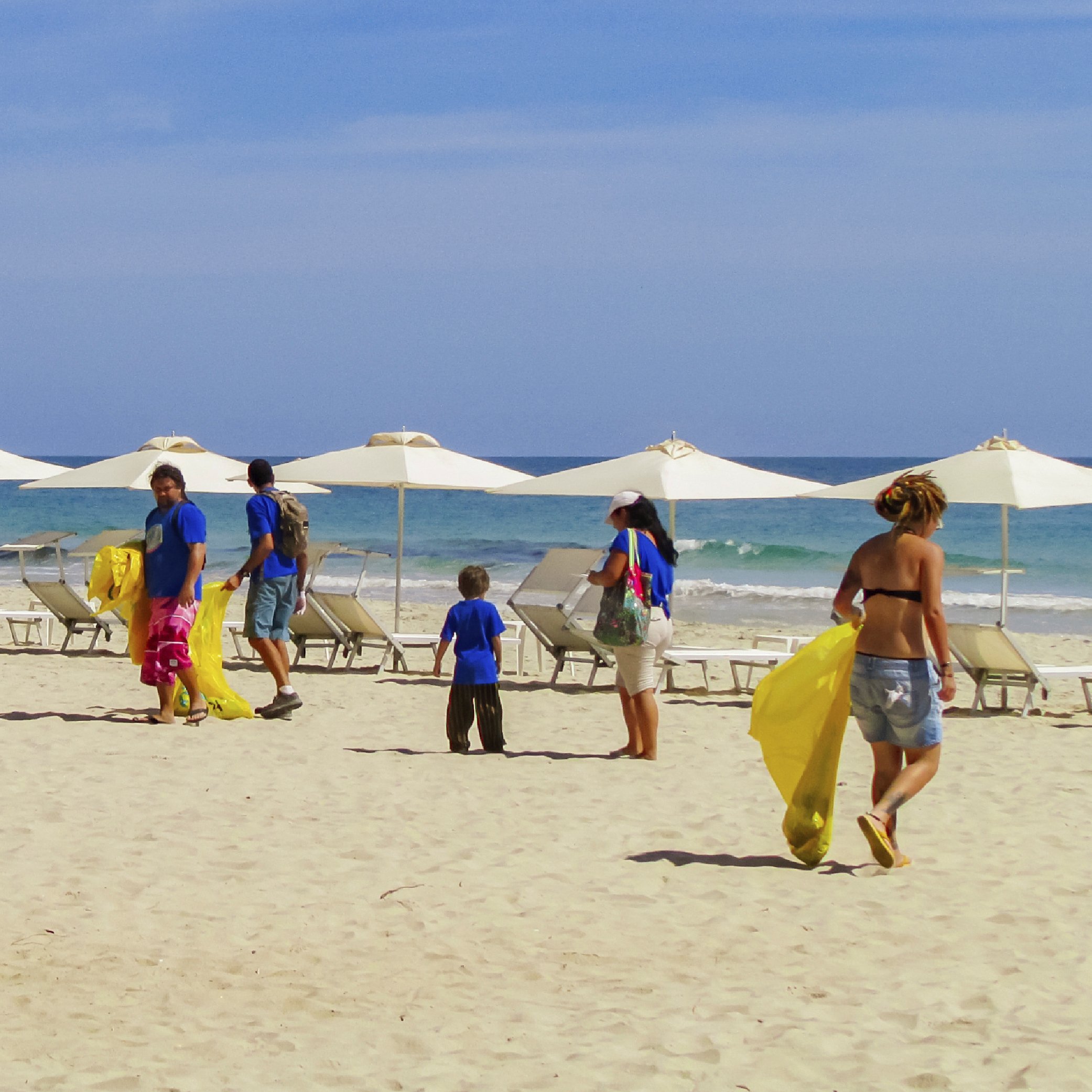Clean Beaches Week - How Can You Make a Difference?

Clean Beaches Week, which is celebrated annually from July 1-7 in the U.S., is a weeklong celebration to honor our beaches and highlight the importance of keeping them clean.
Humans impact the oceans in many ways, but one of the gravest impacts the oceans are currently facing is the scourge of marine debris and plastic pollution. Marine debris originates from many sources, both land-based and ocean-based, and negatively affects marine wildlife, and people, especially coastal communities who depend on the oceans and marine resources for their livelihoods. Marine wildlife can ingest trash, mistaking bits of plastic for food, or can become entangled and drown. Plastics are particularly harmful as they don't readily biodegrade, but rather break down into smaller and smaller bits of plastics known as microplastics, which are ingested by marine organisms and make their way up the food chain and onto our plates. Plastic has been found in 100% of marine turtle species, 59% of seabirds such as pelicans and albatrosses, and more than 25% of fish sampled from seafood markets globally [1].
While beachgoers can do little to prevent fishing gear from being discarded in the oceans, we can do our bit to prevent land-based trash from entering the ocean.
The Clean Beaches Coalition has identified four key focus areas that highlight the important role that clean beaches and a healthy marine environment contribute to our wellbeing [2]:
Environment — A clean beach environment not only makes our day at the beach that much more pleasant, but it is also important for the health of marine animals, such as seabirds, seals, and turtles that may come into contact with our litter. Make a concerted effort to take your litter with you when you leave, leaving only your footprints in the sand.
Dining — Seafood is a healthy source of protein, and according to the American Heart Association, we should include at least two servings of fish (preferably fatty fish rich in omega-3 fatty acids) in our diet every week [3]. During Clean Beaches Week, make a point of enjoying a healthy meal when you visit the beach, and try to include at least two fish-based meals in your diet. If you opt for take-out food while visiting the beach, remember to throw your packaging in the bin, or to recycle wherever possible.
Recreation — More than 180 million American beachgoers visit the coast every year. The Clean Beaches Coalition encourages beachgoers to make the most of the warm summer weather by getting out and partaking in healthy beach activities such as fishing, surfing, playing frisbee or beach volleyball, or taking a walk on the beach to unwind. Enjoying the beach while getting a healthy dose of vitamin D is good for our general health and wellbeing. But remember to tread lightly and only leave your footprints behind.
Travel — Every year, 2 billion American tourists visit the ocean and beaches around the world [2]. The Clean Beaches Coalition encourages visitors to be more mindful of the impact they are having on the environment and to make a concerted effort to reduce their carbon footprint by using less energy, carpooling or using public transport, and walking or cycling instead of traveling by car wherever possible.
There are other measures you can take to beat plastic pollution and ensure your waste doesn't end up on a beach somewhere, ultimately adding to the growing microplastics problem. Some of these measures include reducing your plastic consumption, reusing plastic, and recycling your plastic waste. We can all do our bit to reduce the impact that our trash is having on the marine environment, whether it's reducing the amount of waste we generate, picking up our trash, or even picking up litter left behind on the beach by other beachgoers. If we all make a concerted effort to leave the beaches as clean as we would like to find them, our coastlines and beaches are more likely to be restored to their pristine state for us to enjoy in the future.
Sources:
- National Today - Clean Beaches Week https://nationaltoday.com/clean-beaches-week/
- Events - Clean Beaches Coalition http://www.cleanbeaches.com/events.html
- Fish and Omega-3 Fatty Acids https://www.heart.org/en/healthy-living/healthy-eating/eat-smart/fats/fish-and-omega-3-fatty-acids
- Most Viewed Blog Articles (5)
- Company News (285)
- Emerging Technologies (64)
- Microbiology and Life Science News (93)
- Water and Fluid Separation News (97)
- Filtration Resources (93)
- Product News (19)


![Join Sterlitech at BIO 2024 [Booth #5558]: Exploring the Future of Biotechnology](https://www.sterlitech.com/media/blog/cache/300x200/magefan_blog/b4.jpeg)



